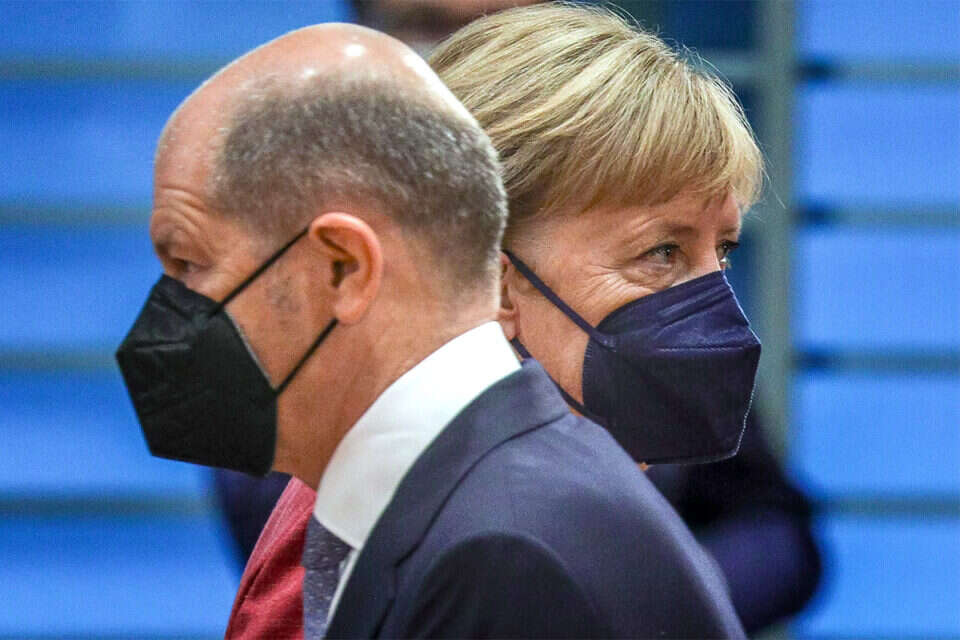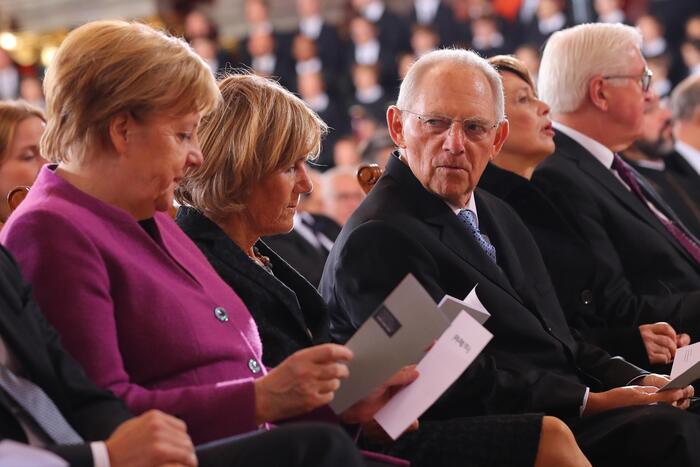Germany elects: This coming Sunday, general elections will be held in Germany, which may reshape the face of German politics and have an impact on the future of Europe.
Some 60 million German voters will decide who will sit in the Bundestag and who will form the next German government.
Elections for the City of Berlin will also be held on the same day.
After about 16 years as Chancellor Angela Merkel, the leader of the Conservative Union, opinion polls predict a victory for the German left, led by the Social Democratic Party led by Olaf Schultz, who served in the "Grand Coalition" government as deputy chancellor and finance minister.
The polls also found that Schultz, a 63-year-old lawyer, won the third televised confrontation earlier this week between him and his two rivals - Conservative candidate Armin Lasht and Green Party candidate Annalna Barbuk - in which he managed to convince most Germans he was the right candidate. As Chancellor.
Voting in advance in Germany,
Although in recent days there has been a slight recovery of the Conservatives, who have fallen in recent polls to a historic low of 20%, it seems that left-wing parties - the Social Democrats and the Greens - are about to gain a majority to try to form the next government. FDP), the far left (Die Linke), and with no other choice - even with the Conservative Union.
The possibility that for the first time in the history of a united Germany a left-wing coalition would be formed with the participation of the extreme left, which also includes veterans of the East German Communist Party, led the conservative union leaders to warn of a "left-wing wave" that would take over Germany. With this threat, the Conservatives' top hopes hope to arouse the right-wing electorate and persuade them to vote for them - instead of the populist right-wing party, "Alternative to Germany" - or to abstain. Conservatives also tried to focus the election campaign on issues of "law and order", personal security and restricting immigration to Germany, but ultimately dominated nature and environmental issues, social disparities and the growing housing crisis.
The forthcoming elections in Germany have two historical characteristics: The first - for the first time in the history of modern Germany, the current Chancellor (Merkel) announced his retirement in advance, and was not removed from office following a defeat in the election or a vote of no confidence in parliament.
And the second - for the first time in the history of modern Germany, three candidates are running for the most senior executive position in Germany, and not just two.
Poster of the candidate Olaf Schultz in Germany, Photo: AFP
In all previous elections, the two largest parties, the Union of Conservatives and the Social Democrats, have run for office.
The "Greens", who have become very strong in recent years, and at one time it seemed that they might win the election - decided this year to break the traditional political equation, and run a candidate on their behalf.
It should be noted that unlike the conservative Lasht and Baroque "Green", the Social Democrat candidate, Schultz, does not head his party, but was elected chancellor because he was the more mainstream representative of his party, unlike the current leadership, which is more inclined to the extreme left.
Next Bundestag parties
Social Democrats (SPD): Germany's oldest party.
She ruled from 1982-1970 and 2005-1998, and was also a member of the "Grand Coalition" governments with the Conservatives for two years, in the late 1960s, and in three of the four governments formed by Angela Merkel.
Yeshiva as a secondary partner in Merkel's governments has significantly reduced public support for the party - until a surprising recovery in recent weeks, mainly due to the weakness of the conservative Lasht.
Conservative Union (CDU-CSU): Consists of the Christian-Democratic Party, which is active in 15 of Germany's 16 provinces, and the Christian-Socialist Party of the Province of Bavaria - which is considered more conservative among them.
During Merkel's long tenure, the Conservatives' Union abandoned its traditional positions and concentrated, prompting many voters to abandon it and seek another political home - the Liberal Party, and especially the right-wing Alternative for Germany party.
The Greens (Die Grünen): Founded as an anti-establishment protest party.
Rides on the weakening of the two parties that have traditionally been the largest and on the wave of public panic from the global climate crisis.
Until recently, it seemed that she would become, for the first time, the leader or the second largest in the next Bundestag.
But a string of "literary thefts" scandals and resume forgeries linked to the party's candidate for chancellor, and growing fears that the Greens' ecological plans would harm the German economy, led to a certain drop in party popularity.
The Liberals (FDP): For years was a tongue-in-cheek, sometimes collaborating to form coalitions with the Conservatives, and sometimes with the Social Democrats.
From 1998 she sat almost continuously in the opposition (except for her membership in the Merkel government in 2013-2009).
In the 2013 elections, for the first time in its history, it failed to cross the high blocking percentage (5%).
This time, it may once again become a tongue-in-cheek, if it abandons its clear right-wing profile and helps - for the first time in 40 years - form a left-wing government.
Alternative to Germany (AfD): Established as a protest movement for Merkel's policies in the euro crisis, strengthened by the refugee crisis due to its opposition to growing Islamization in Germany and Europe, and in the last elections became the third largest in the Bundestag and the main opposition party.
Due to extremist nationalist elements in its ranks, it is boycotted by other parties that deny any political cooperation with it, and the German GSS even sought to define it as extremist.
Die Linke: The far left party.
It was formed by a union between far-left activists from the Social Democratic Party and the remnants of the ruling party in communist East Germany.
Due to its ties to the communist past, it was considered ineligible for a coalition at the national level, but was a member of provincial governments in the former East Germany and Berlin.
It will take a lot of ideological concessions for her to sit in a federal government.









